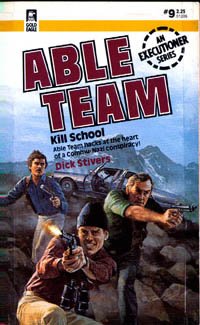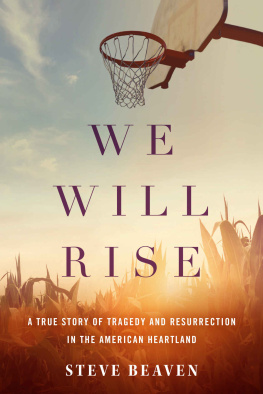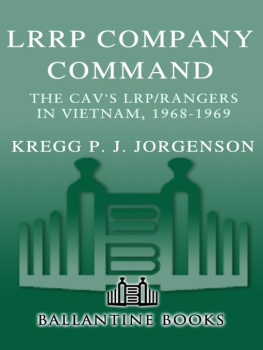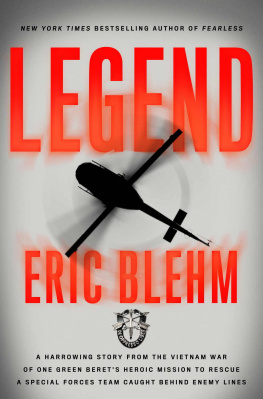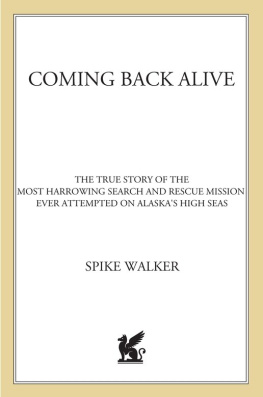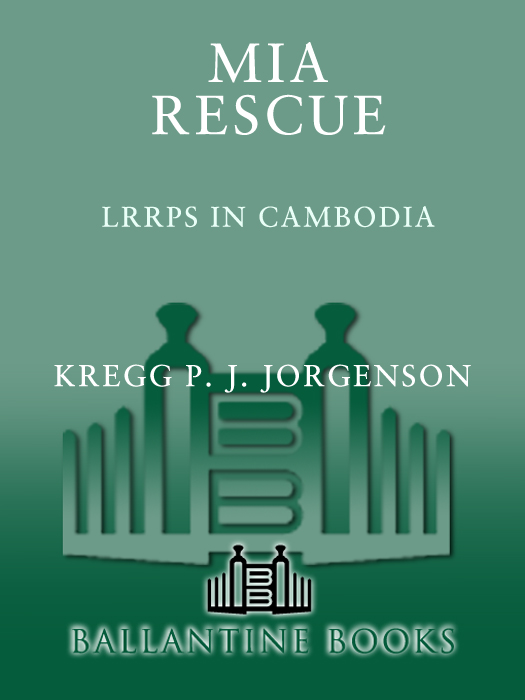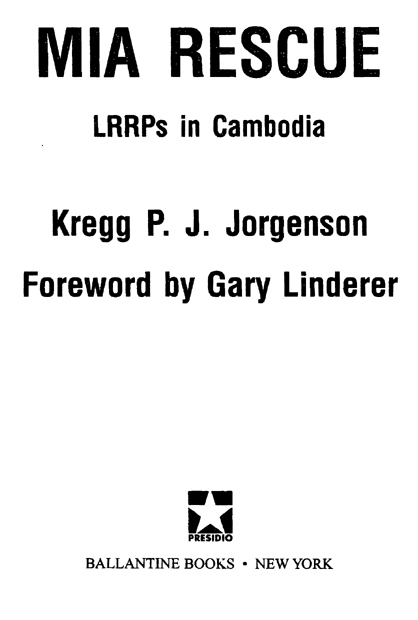Skirting the clearing, Cochrane and his people slowly closed the distance, and the team leader breathed a sigh of relief. But it was short-lived. Cochrane heard the voices first, just a few feet in front of him, then saw the enemy soldiers scrambling into their fighting positions as they brought up their weapons.
Gooks! Get down! he yelled, opening fire and spraying the enemy position to his immediate front. Orange clay kicked up around the bunkers just a few yards away. At that distance there was no time to aim. You just pointed and fired.
Contact! Team 5-2, contact! Andrus yelled into the radios handset as he had been trained to, only to get no response.
A Presidio Press Book
Published by The Ballantine Publishing Group
Copyright 1995 by Kregg P. J. Jorgenson
Excerpt from Acceptable Loss copyright 1991 by
Kregg P. J. Jorgenson
All rights reserved under International and Pan-American Copyright Conventions. Published in the United States by Ballantine Books, a division of Random House, Inc., New York, and distributed in Canada by Random House of Canada Limited, Toronto. Originally published by Paladin Press, a division of Paladin Enterprises, Inc., in 1995.
Presidio Press is a trademark of Random House, Inc.
www.ballantinebooks.com
Library of Congress Catalog Card Number: 95-95322
eISBN: 978-0-307-87451-1
v3.1
CONTENTS

FOREWORD

The Vietnam War was the greatest single divisive event in United States history since the American Civil War. During more than 10 years of U.S. involvement in South Vietnam, an entire generation of young Americans was forced to choose between supporting or not supporting the U.S. war effort. There was no middle ground, no buffer zone. The war affected each of us. The threat of the military draft hung over every male high school senior like an ominous specter. An event that in better times heralded a young mans passage into manhood became a sinister game of Russian roulette, a flip of the coin, a role of the dice. There was a general malaise in the air that kept us from feeling secure about our futures. Careers were put on back burners; many attended college who in ordinary times wouldnt have, while others dropped out under the pressure of maintaining grade points for all the wrong reasons; wedding plans were made prematurely and in other cases were canceled out of fear or uncertainty. Millions of young lives were kept in constant turmoil. Fear and doubt overshadowed enthusiasm and self-confidence. It was a traumatic time for Americas youth, and an entire generation was at peril.
But this baby boomer generation did not abandon hope. In spite of the growing unpopularity of the Vietnam War and the soaring casualties that drained and wrecked the flower of this generation, its young men and women still answered our nations call to duty. And they served with honor and courage in the face of an unpopular national cause that would have destroyed past generations.
Their personal sacrifices went unrecognized in the early years after the war. The few literary works that somehow found their way into the marketplace did so only because they were critical of the war and of those who participated in it. A few Vietnam veterans speaking out against the war did manage to get their stories in print, but by and large the American public had had enough of Indochina. The war and its survivors were shoved to the back of the attic with the rest of lifes unwanted baggage.
The time has now come to clean out the attic. A new generation of young Americans hungers for knowledge. They want to know why Vietnam is a black hole in our history. And theyre intelligent enough to know that the truth and the lessons learned about the Vietnam War are not contained in the numerous volumes of buck-passing, finger-pointing literary trash marketed by the politicians, the diplomats, the journalists, and the military staff officers who were the real culprits in the Vietnam debacle. To the young men and women who paid their dues in blood and personal sacrifice on the deadly battlegrounds of Indochina, you are finally getting the chance to tell your stories. And for the first time, the pain and the trauma of a war not won are being revealed for those who will follow us.
Kregg Jorgenson is a survivor of the Vietnam War. A decorated warrior and an accredited journalist/author, he is uniquely qualified to write about combat in Vietnam. As in our court system, the credibility of an eyewitness is never challenged as circumstantial, nor is established expert testimony usually discredited. Kregg Jorgenson is both an eyewitness and an expert on the Vietnam War. His work needs no introduction, for it is honest, accurate, and well written, and what more can a reader ask for? He speaks for all of us survivors of Vietnam and especially those fallen comrades who can never tell their stories.
Gary Linderer
Behind the Lines magazine
PREFACE

This book is based on the story of an ill-fated, five-man U.S. Army Ranger Long-Range Reconnaissance Patrol (LRRP, pronounced lurp) missing in action in Cambodia in 1970 and the rescue mission that followed.
It is not the definitive history of the units involved, nor is it meant to be construed as the official version of what happened at the time. Instead, it is a war story told from the perspective of many of those who took part in the fighting.
The book itself was a two-year journey which allowed me to piece together the real story from a number of eyewitnesses and from documented accounts, which is why I say that it is not the official version.
Besides using the U.S. Armys records of the missions and various other documented accounts to give the tale additional credibility, I wanted to include the statements and comments of those who took part in the operation. So MIA Rescue is a story compiled from lengthy interviews, old notes, the recollections of participants, maps, and photos.
Unlike the U.S. Armys official after-action reports or lessons-learned formats, this story contains much human emotion. It is told from the point of view of several of the key players who were fighting on the ground or taking hostile fire in the air above, and not from those who later, calmly or indifferently, analyzed what had happened.
The trouble with the official accounts is that theyre always too cut-and-dried, too black-and-white to really understand what had happened, explained a former helicopter pilot who took part in the rescue mission. They dont have the feeling, color, or gut-level emotion that went into it. Its more than just boiled-down facts and figures; more than just that so many people were wounded or killed or how much equipment was lost or destroyed. Thats for the number crunchers and the statisticians. When you tell the story, he said pointedly, do us all a favor and make it breathe.
On a final note, MIA Rescue isnt about re-fighting the war in Vietnam in print and with vanity winning something that was lost years ago. It isnt about sanitizing history either, but humanizing it and making it breathe so the reader will get a better understanding of what occurred and what it took from those who were involved.


